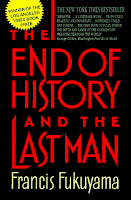The western world is full of the distractions that our
prosperity and liberal values allow.
So much so, that for the most part we forget that we are at war. Then along comes a tragedy like the
Paris attacks yesterday night, and for a few days – sometimes even weeks – we
remember again about our war.
It is a war like no others before it. It doesn’t often come onto our soil,
but it pervades our governments’ and security forces’ actions almost in total.
Our military forces are nearly exclusively engaged in military action in the
middle east; our security services dedicate the majority of their attention to
threats from that same middle east.
But this isn’t just a one-sided military war. It is a culture war too. It is a war of liberalism versus fundamentalism,
and the hinterland of this cultural dimension is at the heart of fears about
the refugee crisis dominating Europe.
There is no clear resolution. Well, there is no clear resolution that commands political
support. On our own domestic front
– thrown into stark relief once again by the killing of over 120 innocent
Parisians doing nothing more warlike than enjoying the leisure offered by a
liberal society – it is an obvious misnomer to equate the killers with a single
religion. Their creed is a more
nihilistic brand of fundamentalism, and that exists across all religions. These particular fundamentalists are
more militarised because their immediate counterparts in the middle east are
militarised, but their core opposition to the values of liberalism are not much
different from the opposition of any fundamentalist to the values of an individualist,
free-thinking society.
So how did liberalism get here? How has a western society, drawing its guiding principles
from an ideology which elevates tolerance and individual freedom get to a point
where it is in a terrible, almost underground war on its own soil against those
who want to dismantle it?
Perhaps the problem originated with the inability of western
governments to divorce themselves from an interventionism that has also been
part of liberalism. Liberalism
shouldn’t be interventionist – or expansionist – but the foreign policies of
liberal governments have never quite subscribed to that view. Inevitably perhaps, since governments
are the least able to protect themselves against a corruption of power which
demands your aggressive defence against known and unknown enemies.
Thus, in the name of defending liberal values, western
governments have found themselves at war. And they are finding what true liberals
could have told them all along – war is fundamentally destructive of liberal
values, both internally and externally.
Externally, in the ways we have seen. The enemies the war has created do come
after you, and if they themselves are weak then they come after your weakest
element too. IS are a brutal,
murderous group governed by an abominable fundamentalist mentality, but
compared to the military complexes of the liberal nations they are weak. They win on the ground because our
governments have started to hesitate in their use of their own military
power. Hesitated too late, alas. So IS attacks in a way that their
weakness finds most effective. By
taking aim at the ‘soft underbelly’ of western society.
Internally, the threat to liberalism exists because each
time an attack takes place, more credibility is given to the idea that
governments and their forces should increase their own domestic power.
So has liberalism failed? How do we escape this desperate cycle? There will not be wanting voices to
call for greater action in Syria; more bombings of sometimes military and
sometimes civilian targets. More
boots on the ground. More action
in Iraq too perhaps. Maybe
Afghanistan. But consider
this. The only real path for
military success is to engage in a full, total and continuous war until we have
utterly decimated and destroyed all the forces arraigned against us; and then
to maintain a full military presence to suppress any resurgence of that
fundamentalism which militates against us for as long as such feelings might
exist.
Read that last bit again and see if it has any likelihood to
it whatsoever. Of course it
doesn’t. Not even war-based
empires like Rome succeeded in such a path for any length of time. But it is the only way of operating if
you want to go down the path of military success.
Alternatively, we could try and rescue liberalism and the
societies which embrace it by beginning the slow, painful retreat from interventionism. It won’t be easy. The seeds of terrorist opposition that
have already been sown are still growing and being harvested, and will be a
long time before that soil can finally dry up. There is still a long slog ahead for governments and security
services as they seek to protect their societies without reducing them to
illiberal states. But if we really
want to escape from the cycle of mindless, fundamentalist, random attacks on
the innocent of our societies, then we have understand where it has come
from. And it came from the failure
of liberal governments to fully embrace an ideology that should never have
allowed them to send half-hearted military forces into areas they barely
understood.


